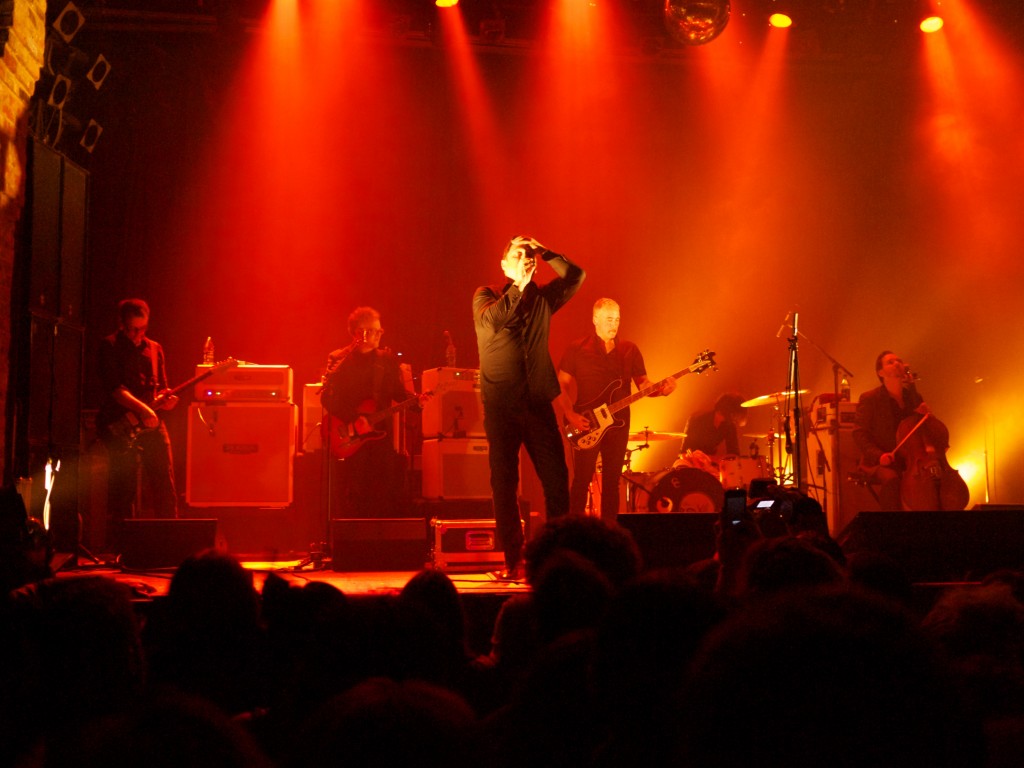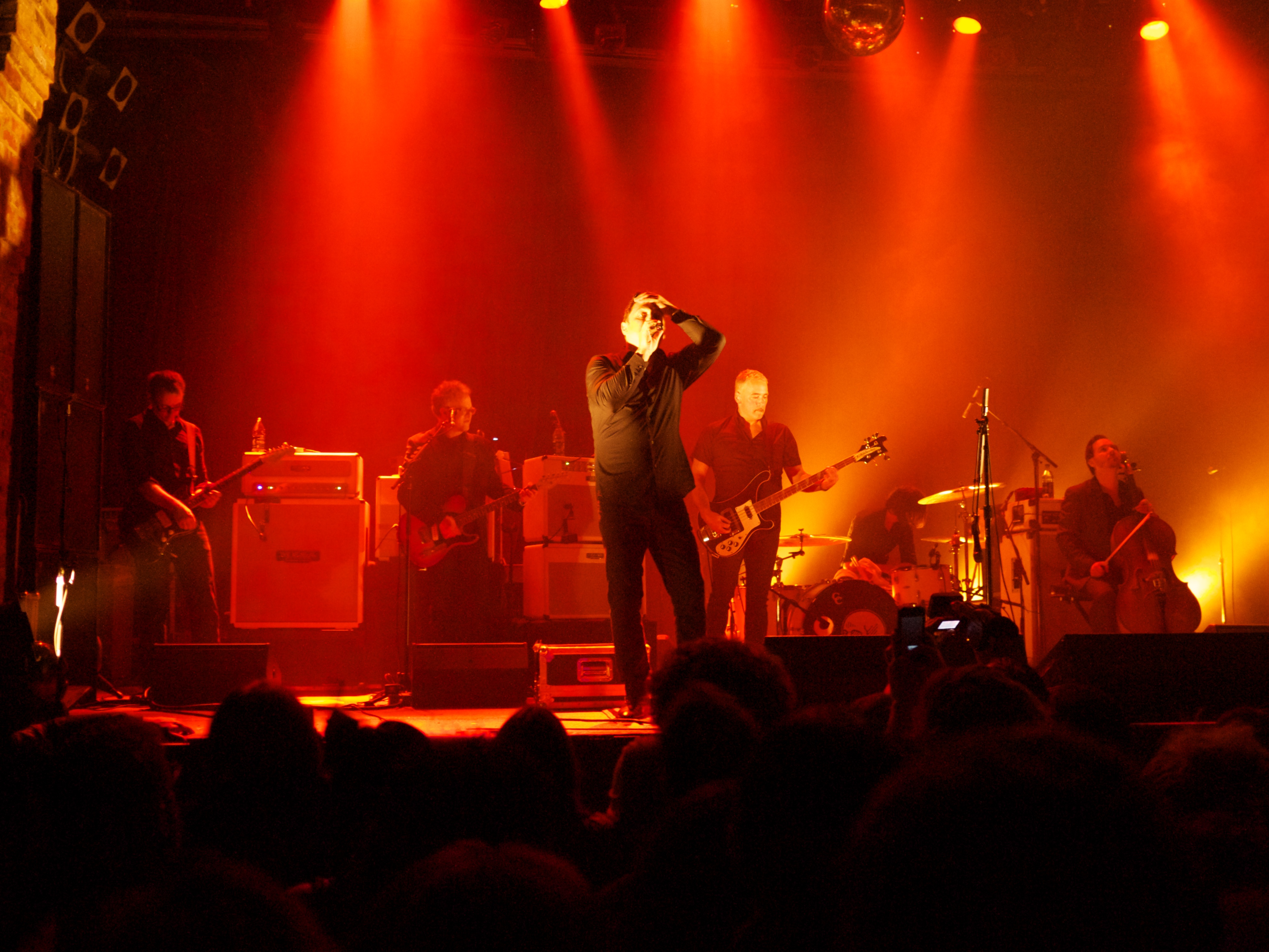Cincinnati’s Afghan Whigs reunited in 2012 for a world tour that began with a dozen dates in Europe, Israel, Australia, and Canada, appearances at various summer festivals including Lollapalooza 2012 in Chicago, and ended with a fall tour of the United States. The band did not appear in Cincinnati until late in the tour, and by all accounts the band’s October 25 performance at Bogart’s was a dominating one, centered around material from 1993’s Gentlemen and 1996’s Black Love.
The New Year’s Eve show differed dramatically from their October appearance, with a 9-piece stage band and almost no overlap in the set list. A horn section and backing singers enabled faithful performances of songs from 1965, the Whigs’ final and most technically ambitious studio album. Although the band performed much material from 1965 elsewhere in 2012, the band largely skipped over these songs at the October 25 performance in anticipation of the special New Year’s Eve show.
 The Afghan Whigs play at Bogart’s on New Year’s Eve. Photograph by Travis Estell for UrbanCincy.
The Afghan Whigs play at Bogart’s on New Year’s Eve. Photograph by Travis Estell for UrbanCincy.
The full instrumentation of the 1965 tracks and the three closing songs from Black Love, played in sequence during the encore, were the show’s highlights. Conspicuously absent were “Milez is Dead”, “Honkey’s Ladder”, “Debonair”, and a number of other well-known songs that in place of ballads and other scattered material could have avoided the lull that marred the midpoint of Monday night’s show. Further, the PA mix was completely different – the searing sizzle of the guitars heard in October was pulled back and at times obscured by muddiness coming up from the bass guitar or some other source.
Hanging like a cloud over Monday night’s show was the knowledge that it was probably the final live performance by the Afghan Whigs, ever. Singer Greg Dulli announced that possibility late in the evening, soon after asking for a show of hands from people who traveled to the show from outside of Cincinnati. With hundreds hands raised, Dulli paused for a moment as if he might start a natives vs. visitors shouting match resembling the Ohio vs. Kentucky shouting heard each year at the Riverfest fireworks.
Instead, he never called on Cincinnatians and let the uncomfortable silence speak for itself – a slap at the local radio stations, other media outlets, and local music fans who never supported the band in their heyday or during the 2012 reunion. Aside from CityBeat, no local media source made anything more than a casual mention of the 2012 tour, and with the demise of WOXY, The Afghan Whigs are heard today only on low-wattage WAIF and WNKU.
Anecdotally, I have not heard the Afghan Whigs even once in public – either at a bar or at a party – since moving back to Cincinnati in 2007. The band’s failure to become the Next Big Thing in the 1990s is discussed ad nauseam on seemingly every Internet discussion board and YouTube comment section, but the failure of Cincinnati to embrace them then or now is another. Neighboring cities like Cleveland and especially Detroit have always celebrated their native sons, but Cincinnati seems determined to ignore The Afghan Whigs as much as they do James Brown and the legacy of King Records.
